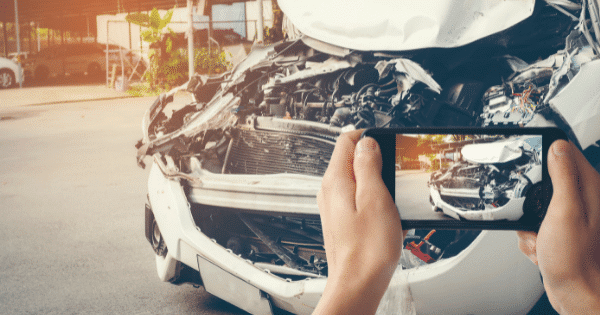If you’re a car owner, there’s nothing more frustrating than receiving a repair estimate that exceeds the value of your beloved vehicle. It’s a situation that can leave you feeling stuck, wondering what your next move should be. In this article, we’ll explore the intricacies of this predicament and provide you with valuable insights to help you navigate this challenging scenario.
Understanding the Totaled Vehicle Concept
When the cost of repairs for your car surpasses its actual value, your vehicle is considered totaled, or a total loss. However, the definition of a totaled vehicle can vary from state to state. Some states follow a specific formula to determine when a car is deemed a total loss, while others leave it up to the insurance company’s discretion.
In California, for instance, the state follows a “total loss formula” approach. If the repair costs, combined with the salvage value of the vehicle, exceed the vehicle’s actual cash value (ACV), the car is considered totaled. The ACV is determined by considering factors such as the vehicle’s make, model, age, mileage, and overall condition.
What Happens When Your Car is Totaled?
If your vehicle is declared a total loss, your insurance company will typically offer you a settlement based on the ACV of the car before the accident or incident that caused the damage. This settlement amount is intended to compensate you for the loss of your vehicle, allowing you to purchase a replacement vehicle or use the funds as you see fit.
It’s important to note that the insurance company will take possession of your totaled vehicle once the settlement is accepted. This is because the insurer essentially becomes the new owner of the salvaged vehicle, which they can then sell or dispose of as they see fit.
Factors to Consider When Deciding Your Next Steps
When faced with a totaled vehicle, you’ll have to weigh your options carefully. Here are some factors to consider:
-
Sentimental Value: If your car holds significant sentimental value, you may want to consider paying for the repairs out of pocket, even if the cost exceeds the vehicle’s ACV. However, keep in mind that this decision could potentially impact the car’s resale value in the future.
-
Repair vs. Replacement Costs: Compare the cost of repairing your vehicle with the cost of purchasing a similar replacement. Sometimes, it may be more cost-effective to replace the car, especially if the repair costs are substantially higher than the vehicle’s value.
-
Vehicle Age and Condition: Evaluate the age and overall condition of your car. If it’s an older model with high mileage or significant wear and tear, it may be wiser to accept the insurance settlement and invest in a newer, more reliable vehicle.
-
Loan or Lease Obligations: If you have an outstanding loan or lease on your totaled vehicle, you’ll need to consult with your lender or leasing company to understand your options and potential financial implications.
Negotiating with Your Insurance Company
If you disagree with your insurance company’s assessment of your vehicle’s ACV or the settlement offer, you have the right to negotiate. Gather evidence, such as recent comparable sales data or expert appraisals, to support your case. Be prepared to present a well-reasoned argument and be willing to compromise if necessary.
Conclusion
Dealing with a totaled vehicle can be a frustrating and emotional experience, but understanding your options and rights can help you make an informed decision. Remember, your insurance company is obligated to treat you fairly and provide a reasonable settlement offer. If you feel that your insurer is not acting in good faith, don’t hesitate to seek assistance from a trusted professional or legal counsel.
Car Repair Costs More Than The Car! What Should I Do?
FAQ
Is it worth fixing a car for more than it’s worth?
What if damage is more than car is worth?
What is a car considered select if the costs of repair exceed the value of the car?

